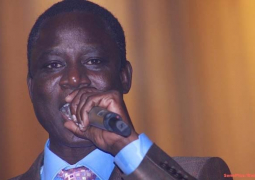He has also said that all government and presidential press releases, speeches and statements should be given to all media houses - both the public and private media - in the country, with one reporter from each media house assigned to be covering functions of the President at the palace in Dakar.
This is a sterling move by President Macky Sall to open his doors to the media.
Everyone knows that the media plays a crucial role in the development of society, hence Government and the Press are partners in development. They should be seeing eye to eye as real partners, because both are there to serve the nation and promote the well-being of the people. In doing so, much of the misconception about the activities of governments would be curbed.
It is, therefore, a welcome move by the President of Senegal in extending an open invitation to all media houses in his country without exception to cover the functions of the presidency at the palace.
This example should be emulated by all African leaders and governments, so that journalists would have access to government activities of public interest, thereby enabling them to do their job properly.
Otherwise, journalists would be restrained in doing their job.
Beside Senegal, there are some other African countries that earnestly support the media by giving media companies a subvention and training facilities to execute their functions professionally and independently for the good of nation-building.
Some of these countries are Cote d’Ivoire, Benin, Gabon and Botswana.
The African media lacks resources to maintain the operations of the newspapers, radio and TV stations. They, therefore, need a helping hand and the most appropriate to do this is the government.
It is essential to note that the introduction of online media, for instance, has diminished further the proceeds generated from the sale of especially newspapers. Advertisements are not paid for up front, and receiving or collecting payments for adverts and newspaper subscription is very hard, for it takes a long time to receive such moneys.
Also, many a time newspaper companies experience bad debt, which aggravates their dire financial condition.
Considering all these constraints, the media needs support to upkeep its traditional role of informing, educating and entertaining the public. Without information, it should be noted, we will dwell in darkness, which will affect development, as well as leave the state vulnerable to misinformation.
Therefore, governments should always make provision for access to information by appointing government spokespersons and or public relations officers in different institutions, who will professionally attend to media practitioners as they carry out their national duties.
Media companies in a country should be treated equally in terms of coverage, and access to government press releases and statements to the public.
In the case of The Gambia, many journalists are facing serious problems in trying to clarify issues and get authentic versions of information in the air.
As many a time the response from state authorities is: “I am afraid I am not in a position to talk to the media,” when journalists want to clarify pertinent state or public issues of concern to all in the society.
This frustrating situation leads to speculations and rumour-mongering, which does not augur well for national development.
Therefore the steps of President Macky Sall are sterling and worthy of emulation.
“A free press can, of course, be good or bad, but, most certainly without freedom, the press will never be anything but bad.”
Albert Camus
Read Other Articles In Article (Archive)
Alleged thief remanded at Janjanbureh prison
Jul 2, 2008, 5:30 AM



